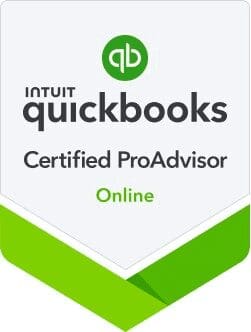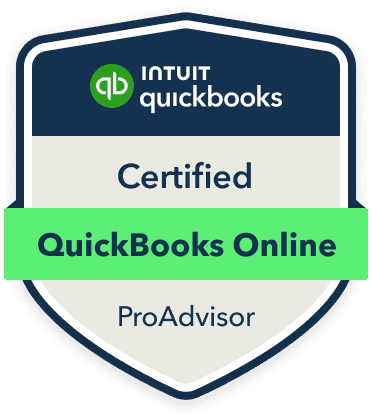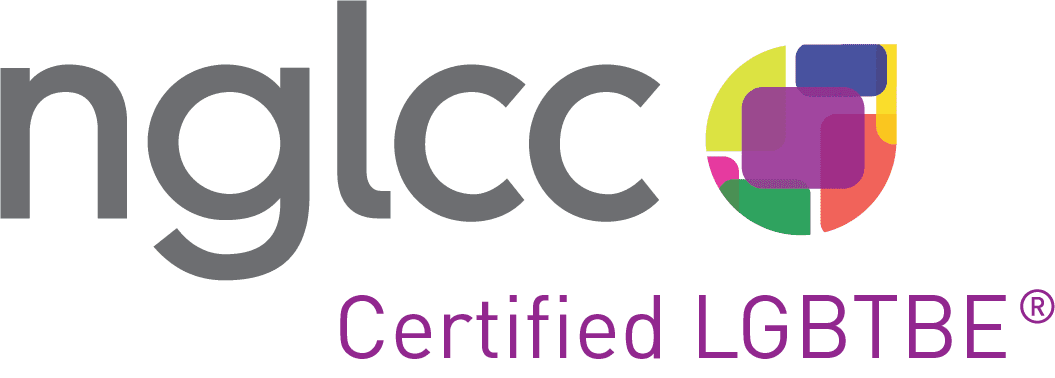Embarking on the journey to becoming a proficient accountant demands more than just understanding numbers; it requires dedication, organization, and constant learning. In this article, we've teamed up with experts from Rought & Accounting in Reno to offer pivotal guidance that will serve both current accounting students and those contemplating a career in this dynamic field. Whether you're navigating your first semester or preparing to enter the professional world, these strategies are engineered to bolster your academic achievements and lay a robust foundation for a thriving career.

At the core of a successful accounting career is a solid understanding of fundamental principles. For students, grasping concepts such as the accounting equation, double-entry bookkeeping, and the intricacies of financial statements is imperative. These fundamentals are not just the building blocks of accounting; they are essential tools that will empower you to tackle more complex problems with confidence. By dedicating time to mastering these basics, you're setting yourself up for academic success and a competitive edge in the job market.
Remaining organized is crucial, particularly in a field as meticulous as accounting. Effective time management goes a long way in handling coursework, deadlines, and later on, professional responsibilities. Coupled with regular practice through problem sets and case studies, these habits enhance your ability to think analytically and maintain precision in your work—an absolute necessity for any aspiring accountant.
As the accounting landscape evolves, staying updated with the latest technological tools is key. Familiarity with software such as QuickBooks or Excel and understanding new ERP systems can greatly increase your productivity and employability. Moreover, building a professional network through internships, accounting associations, and industry events can provide invaluable experiences and mentorship opportunities. These connections not only enrich your understanding of the field but also open doors to potential job offers and collaborations.
Understanding the core principles of accounting is essential for students aiming to excel in the field. Grasping fundamental concepts such as the accounting equation, double-entry bookkeeping, financial statements, and generally accepted accounting principles (GAAP) can make a significant difference in their academic and professional journey. The accounting equation, Assets = Liabilities + Equity, forms the basis of all accounting systems and helps in maintaining balance in the books of accounts. Knowing how to apply this equation ensures that every financial transaction is accurately recorded and balanced across the company's financial statements.
Double-entry bookkeeping, another fundamental concept, requires that every financial transaction be recorded in at least two different accounts, ensuring accuracy and providing a method to easily detect errors. This principle mandates that for every debit entry, there must be a corresponding credit entry, maintaining the balance dictated by the accounting equation. Mastery of double-entry bookkeeping empowers students to handle complex financial records with confidence.
Financial statements, which include the balance sheet, income statement, and cash flow statement, are crucial for presenting the financial health of an entity in a structured manner. Understanding how to create and interpret these documents is vital for making informed business decisions. GAAP provides a set of rules and guidelines that govern the field of accounting. Familiarity with GAAP ensures that students and professionals are up to date with the standards that lead to transparency, consistency, and comparability in financial reporting.
By mastering these basic accounting principles, students lay a strong foundation for advanced studies in accounting and related fields. They equip themselves with the necessary tools to tackle complex accounting issues, engage in accurate financial forecasting, and contribute valuable insights in business strategy sessions. This solid foundation not only enhances academic performance but also significantly boosts career prospects in accounting, finance, and business management.
Furthermore, command over these fundamentals enhances a student’s ability to contribute to discussions on financial strategies, compliance, and financial ethics, making them valuable assets in their future workplaces. With these skills, they are better prepared to face various certification exams like Certified Public Accountant (CPA) or Certified Management Accountant (CMA), which require a deep understanding of these core principles.
In conclusion, the journey to becoming proficient in accounting starts with understanding and mastering its fundamental principles. This ensures that students are well-prepared to ascend to higher learning and professional opportunities, turning them into competent, ethical, and innovative professionals in the ever-evolving field of accounting.
In the complex and demanding field of accounting, staying organized is not just a beneficial skill, it's essential. Accounting students face the dual challenge of managing rigorous academic schedules and preparing for a professional environment that demands precision. Effective organization helps in achieving day-to-day success and sets a foundation for a flourishing career. Techniques such as maintaining a clean workspace, using digital tools for schedule management, and regularly reviewing class materials can significantly enhance one's ability to stay on top of their studies. Regularly updating task lists and setting clear priorities each week allows students to focus on what's most important, thereby efficiently managing their time and workload.
Maintaining meticulous records is another critical aspect of staying organized in accounting studies. This habit serves a dual purpose: it aids in better understanding and retention of complex material, and prepares students for the exacting nature of professional accounting, where accuracy in financial documentation is paramount. Using spreadsheets, dedicated accounting software, or even specialized apps to track grades, project deadlines, and exam dates can also streamline the process, making it easier to build a routine that reliably supports both academic and future professional needs.
Mastering time management is crucial for accounting students, who often juggle coursework, internships, and exam preparations simultaneously. One practical approach is the implementation of a priority-based schedule, where tasks are ranked according to their urgency and importance. This method not only helps in identifying what needs immediate attention but also in avoiding the pitfalls of last-minute stress. Additionally, breaking larger projects into manageable segments can reduce overwhelm and make large tasks seem more achievable.

Employing the use of modern technology can further enhance a student's ability to manage time effectively. Tools like calendar apps, reminder systems, and mobile planners can assist in keeping track of appointments, deadlines, and meetings, ensuring nothing is overlooked. Moreover, establishing a consistent study routine encourages discipline, a trait that is indispensable in the professional life of an accountant. Allocating specific times for studies, revisions, breaks, and leisure activities can create a balanced schedule that promotes sustained focus and productivity.
Ultimately, the skills developed through effective time management and organization in academic settings are directly transferable to the professional accounting landscape. As students transition into their careers, the ability to manage multiple tasks, meet deadlines, and maintain meticulous records becomes increasingly important. These skills not only boost efficiency but also enhance the credibility and reliability of an accountant, marking them as professionals of high caliber in a competitive field.
Accounting is not just about learning theories and principles; it is a skill that benefits significantly from continuous practice. Much like mathematics or science, proficiency in accounting comes from problem-solving and the application of concepts in various scenarios. For students aiming to excel in accounting, regular engagement with diverse types of exercises is crucial. Working on problem sets allows students to explore different situations where they can apply theoretical knowledge, helping solidify their understanding and adaptivity. Participating in case studies also provides deeper insights into the practical applications of accounting in the real-world business environment. Furthermore, simulations offer a dynamic platform to experience the real-time implications of financial decision-making, thus enhancing problem-solving speed and accuracy.
Engaging systematically in these activities not only builds expertise but also instills confidence in handling complex financial tasks. By practicing regularly, students can better identify their areas of weaknesses and work on them proficiently. This process is vital for anyone aiming to become a well-rounded professional. The consistent practice also helps students stay updated with the latest accounting standards and technologies, making them more competitive in the job market.
Analytical skills are essential for anyone in the field of accounting. They help professionals make informed decisions based on financial data. Regular practice helps develop these critical skills, as students learn to interpret and analyze financial information quickly and accurately. Investigations into company case studies expose students to complex financial records where they must decipher information, draw appropriate conclusions, and suggest effective strategies. This not only prepares them for the technical aspects of accounting but also enhances their decision-making capabilities.
Simulations and real-world scenarios provide students with opportunities to apply their analytical skills in a controlled, risk-free environment. Here, they can see the outcomes of their decisions and learn valuable lessons without the repercussions of real-life financial decision-making. Over time, this repetitive and reflective practice sharpens a student's ability to handle greater responsibilities and lead financial projects or teams with confidence and expertise.
In conclusion, practicing accounting regularly is fundamental for any student aspiring to succeed in the field. It equips them with the necessary skills, ensures they are adaptable to change, and prepares them comprehensively for professional challenges. Therefore, educators and learners alike should prioritize regular and diverse practice sessions in accounting education to foster a deeper understanding and proficiency in the discipline, ultimately benefiting their careers in the long run.
In an era where technology permeates every aspect of professional life, the field of accounting is no exception. Modern accountants are expected to be as proficient with software tools as they are with traditional accounting principles. Tools such as QuickBooks, Microsoft Excel, and various Enterprise Resource Planning (ERP) systems are not just aids but essential elements of daily accounting tasks. These platforms help in automating complex processes, minimizing errors, and saving time, thereby driving efficiency and productivity in the workspace.
For accounting students and aspiring professionals, staying abreast of these technological tools and the continuous innovations in the field is crucial. The landscape of accounting technology is continuously evolving, with advancements like cloud computing, artificial intelligence (AI), and blockchain becoming increasingly significant. Familiarizing themselves with these technologies can give students a marked advantage in the job market. Moreover, an understanding of technology can vastly enhance the capability to analyze financial data more effectively, thereby improving decision-making skills.
Furthermore, technology is also reshaping the role of accountants in business, making it more strategic rather than just procedural. Therefore, a robust grasp of technology does not only prepare students for current roles but also equips them for emerging opportunities within the field that focus on analytics, consultancy, and strategic planning.
Building a robust professional network is arguably as vital as academic excellence for students aiming to mark their presence in the world of accounting. Engaging with the community through industry events, accounting associations, and even social media platforms can open doors to numerous opportunities, including internships, part-time positions, and ultimately, full-time employment. Such platforms provide invaluable exposure to real-world challenges and the corresponding solutions adopted by practicing professionals.
Attending industry conferences and seminars not only helps in learning from the experiences of seasoned accountants but also assists in staying updated with the latest industry trends and regulatory changes. Moreover, participating in such events can potentially connect students with mentors who can offer guidance, career advice, and insights into the industry’s best practices.
Internships are particularly beneficial as they offer a direct experience of accounting work settings. They help students apply academic knowledge in practical scenarios, understand workplace culture, and develop professional skills. Part-time jobs or shadowing experiences also serve similar purposes and add significant value to a resume, providing a competitive edge in the job market.
By investing time in building these connections and gaining real-world experience, students can significantly enhance their understanding of the accounting field, making them well-prepared and more attractive candidates to potential employers.
Elevate Your Accounting Journey with Expert Guidance
Ready to take your accounting skills to the next level? Whether you're just starting or looking to refine your expertise, Rought & Accounting is here to support you every step of the way. Connect with us today to explore internship opportunities, gain practical experience, or receive personalized advice from industry professionals. Contact us today!



